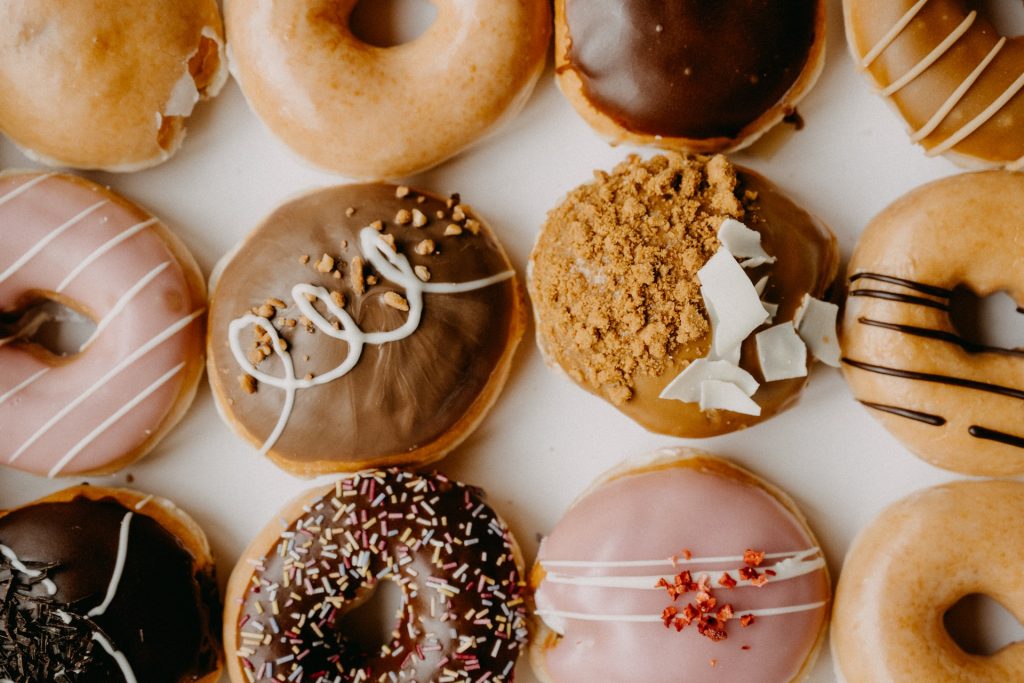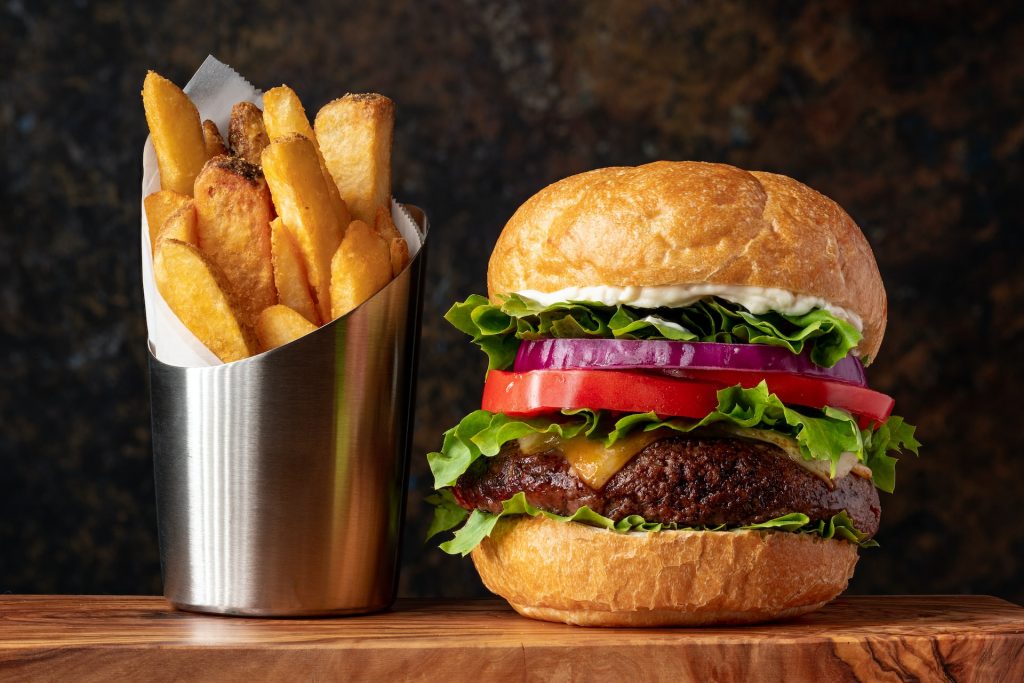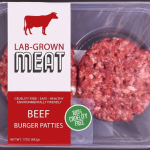Candies, cakes, cookies, donuts, ice cream, and sodas—these foods can be pretty irresistible to us. So many of these make up a large portion of our daily intake. And let’s not forget other fast food or processed food, such as bacon, pizza, hotdogs, burgers, fries, and sandwiches. These foods are common comfort food cravings, which we usually eat when feeling down and want a pick-me-up.
But did you know that too much consumption of these indulgent foods, which are high in sugar and fat, can have long-term health consequences and affect your brain?
Experts have found that these ultra-processed foods can make us crave and eat them more.
So how do sugar and fat affect our brains and make us reach for them and eat more?

When we eat, our brains release dopamine, the neurotransmitter that communicates messages between the brain, nerve cells, and the rest of our body. It’s also known as the “feel-good” hormone that allows us to feel satisfaction, pleasure, and motivation.
Moreover, dopamine is also a part of our reward system. Our brain releases a large amount of dopamine, which rewards us and makes us feel good whenever we do something right or pleasurable, like eating.
Dopamine also encourages us to repeat behaviors. So the more our brain releases dopamine, the more likely we’ll repeat that behavior, hence eating more.
And when we eat food high in sugar, the sensors in the mouth send a message to the striatum, the part of the brain related to movements and rewarding behavior, to release dopamine.

Likewise, when we eat food rich in fat, the message about releasing dopamine is sent to the vagus nerves, which are the main nerves for controlling digestion, heart rate, breathing, and the immune system. Then, after carrying the message to the vagus nerve, it goes to the striatum too.

This is why processed food, typically high in sugar and fat, is quite addicting. It causes a release of dopamine in the brain, further encouraging people to eat more unhealthy foods.
Eating them also causes our bodies to become addicted to food because, as humans, our brains are wired to seek to feel good. So we eat more to release dopamine and repeat the behavior to feel good again. It’s a cycle—over and over again!
Unfortunately, it’s been found that about 12 percent of kids and 14 percent of adults suffer from this condition: food addiction.
Food addiction is when one person has an uncontrollable urge to eat appetizing food (often unhealthy) without being hungry.
Despite not wanting to, people suffering from food addiction may find it hard to control themselves around specific foods. And they repeatedly find themselves eating unhealthy foods even when they know it’s harmful to their health.
Experts have also found that eating food rich in sugar and fat increases dopamine levels in the striatum by 200%, similar to what happens with alcohol and nicotine addictions.
And what’s worse is that processed foods nowadays are developed to hit our body sensors and make them release more dopamine. They are also created to be more easily digestible to the body, which speeds up dopamine release and affects our brains faster.
In addition, studies have found that extra sugar consumption is detrimental to a developing brain’s function and mental well-being. This is because food high in processed sugar can throw off the brain’s chemical balance.
Too much sugar can overstimulate the brain, leading to hyperactivity and mental distress, including mood swings, anxiety, and even depression.
This is because added sugars cause blood sugar, the main sugar found in our blood and our body’s main energy source, to spike and drop. This directly affects our mood as a sugar rush initially gives you an energy boost and then wears off, making you feel down and sluggish after.
Solutions
This is not to say that you should entirely stop eating all foods with sugar and fat, as it’s not practical to completely avoid them. In fact, the nutrients we get from these foods are essential to our diet. Without them, our bodies wouldn’t function properly.
Instead, limit your consumption of these snacks, particularly fast or processed foods. You can still eat a small amount, or as a special treat, such as when you have achieved a goal.
Focus more on eating healthier food. When you do indulge a little, choosing homemade foods instead of store bought processed ones is much better for your health. Homemade cakes, cookies, and pizzas can be fun to prepare and part of a healthy diet when eaten in moderation. Drinking water before meals may also reduce cravings and appetite.
Another important thing to do is mindful eating, which is a type of meditation. Mindfully eating involves slowing down, chewing thoroughly, and being present while you eat. Avoiding distractions, like the TV or your smartphone, is also important. You will find that by doing this you get even more satisfaction from eating your favorite indulgent foods without feeling the impulse to overeat.







